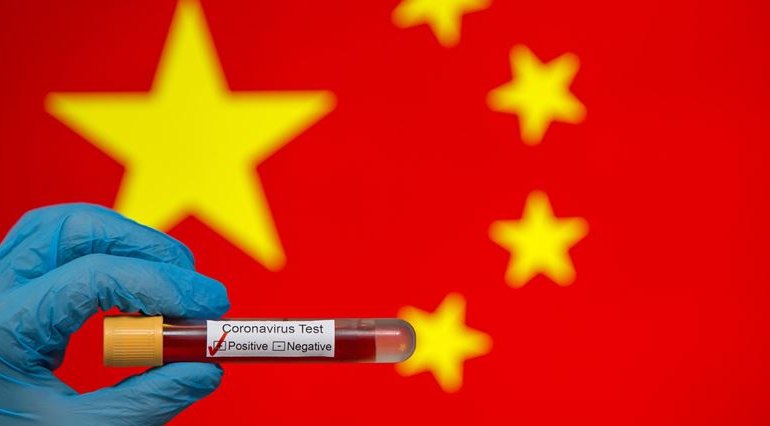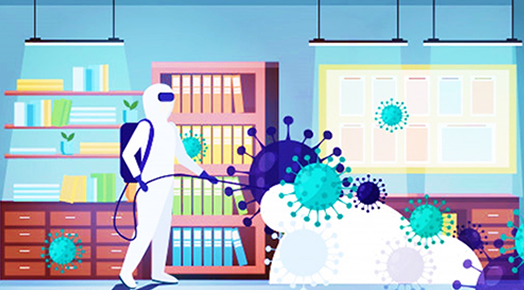Come si può garantire che gli ovociti importati da banche estere per la fecondazione eterologa non vengano contaminati durante la manipolazione e il trasporto? Usando Nterilizer N-Bath!
News
In the last few days, the Chinese Epidemiologists Task Force has stated that many evidences show that frozen fish and meat arriving from abroad can again import the virus, as shown the tests on shrimps arriving from Ecuador, salmon from Norway, squid from Russia, chicken wings from Brazil.
In recent months, the rigorous anti-Covid19 plan applied by China has focused on strict customs controls of imported food. These meticulous controls have opened a real diplomatic case between China and others country on the international markets, in particular about frozen food market. The WHO and the major international food-safety institutes have considered very unlikely the risk of contracting the virus through frozen food or packages, but China continues to argue the opposite, working and acting to avoid the "return" of the virus.
It is very complex to demonstrate the transmission of Covid19 virus through the cold chain, this is the reason why the Chinese government has chosen to take stricter measures throughout the food chain: all frozen food imported, their packaging and means of transport must be disinfected before obtaining the authorisation to enter the Chinese market. Recently, the Chinese customs stopped imports with a food companies from different countries that have one or more employees affected by Covid19. The Chinese control measures include all companies of frozen food (especially for seafood) resultant positive to the virus are temporarily suspended (from 1 to 4 weeks) for the import of food products.
The import of food in China is a very flourishing market. Last year the imports of frozen foods hit about 6 million tonnes of fish and about 5 million tonnes of meat. In the early months of 2020 due to the Covid19 pandemic the importation increased, especially about meat.
The countries involved perceive that measures controls are very excessive, breaking the international trade agreements and undermining the reputation of companies suspended for import from Chinese customs. As a result, there is a growing discontent in the international markets due to these security measures adopted by China.
Avoiding any kind of contamination in the production and storage chain of frozen foods is a key point for relations between international markets and food safety.
NTERILIZER provides the technology necessary to sterilize liquid nitrogen, an essential component for food packaging and freezing.
TAGS: SARS-CoV-2, Covid-19, sterilization, food, freeze food, NTERILIZER, NTERILIZER4FOOD
REFERENCE: Montagnoli L. “Cina: tolleranza zero sull’importazione surgelati. Il resto del mondo non ci sta”. 18 Nov. 2020. Gambero Rosso Italy. LINK: https://www.gamberorosso.it/notizie/cina-tolleranza-zero-sullimportazione-surgelati-il-resto-del-mondo-non-ci-sta/
Covid19 e importazione del cibo surgelato: Cina contro tutti.
Negli ultimi giorni la task force di epidemiologi cinesi ha dichiarato che il pesce e la carne surgelati in arrivo dall’estero possono nuovamente far “tornare” il virus nel Paese, come dimostrerebbero i test effettuati sui gamberi in arrivo dall’Ecuador, il salmone dalla Norvegia, i calamari dalla Russia e le ali di pollo dal Brasile.
Negli ultimi mesi il rigoroso piano anti-Covid19 messo in atto dalla Cina si è concentrato in particolare su stringenti controlli doganali dei prodotti alimentari importati. Questi controlli minuziosi hanno aperto un vero e proprio caso diplomatico tra la Cina e i vari Paesi che si relazionano con essa sui mercati internazionali, in particolare per quanto riguarda il mercato cibo surgelato. L’OMS e i principali istituti internazionali per la sicurezza alimentare hanno considerato molto improbabile il rischio di contrarre il virus attraverso il cibo surgelato o le confezioni che lo contengono, ma la Cina continua a sostenere il contrario, lavorando ed agendo con ogni mezzo per evitare il “ritorno” del virus.
Risulta molto complesso dimostrare la trasmissione del virus Covid19 attraverso la catena del freddo, per questo il governo cinese ha scelto di adottare misure severe e rigorose lunga tutta la filiera alimentare: tutto il cibo surgelato importato, le relative confezioni e i mezzi di trasporto dovranno essere disinfettate prima di ottenere l’autorizzazione per arrivare sul mercato cinese. Inoltre, negli ultimi giorni la dogana cinese ha interrotto le importazioni con un centinaio di aziende alimentari dislocate nei diversi Paesi del mondo coinvolte in casi di positività di uno o più dipendenti. Le misure di controllo prevedono che tutte le aziende di prodotti surgelati (soprattutto per i frutti di mare) risultati positivi anche solo una volta allo screening svolto delle autorità cinesi per il virus Covid19 siano sospese temporaneamente (da 1 a 4 settimane) per l’importazione dei prodotti nel Paese.
La Cina risulta essere un mercato molto fiorente per quanto riguarda l’importazione di prodotti alimentari. Lo scorso anno i surgelati importati hanno superato i 6 milioni di tonnellate di prodotti ittici e circa 5 milioni di tonnellate di carne. Nei primi mesi del 2020, a causa della pandemia da Covid19, le importazioni sono addirittura aumentate, soprattutto quelle di carne.
I Paesi interessati iniziano a percepire i controlli delle autorità cinesi eccessivi tanto da violare i patti commerciali internazionali, minando inoltre la reputazione delle aziende sospese per l’importazione dalla dogana cinese. Cresce così il malumore dei mercati internazionali dovuto a queste misure di sicurezza adottate dalla Cina.
Evitare qualsiasi tipo di contaminazione nella catena di produzione e conservazione dei surgelati risulta essere un punto cardine sia per i rapporti tra i mercati internazionali sia per la sicurezza alimentare.
NTERILIZER fornisce la tecnologia necessaria per sterilizzare l’azoto liquido, componente fondamentale per il confezionamento e surgelazione degli alimenti.
TAGS: SARS-CoV-2, Covid-19, sterilization, food, freeze food, NTERILIZER, NTERILIZER4FOOD
FONTE: Montagnoli L. “Cina: tolleranza zero sull’importazione surgelati. Il resto del mondo non ci sta”. 18 Nov. 2020. Gambero Rosso Italy.
Since the introduction of the first high-rate cooling/warming vitrification technologies, liquid nitrogen mediated disease transfer was always a concern of embryologists and authorities. Unfortunately, up till today, there is not a single closed (“safe”) vitrification method that can compete with the open systems for cryopreservation of human oocytes. On the other hand, out of an estimated two million transfers performed after open vitrification, not a single infection was reported. Accordingly, in most countries, relevant professional organizations and authorities permit, or at least tolerate the use of open systems. In parallel, new measures were suggested to decrease the probability of cross-contamination, including the separate storage of factory-derived liquid nitrogen to be used for cooling, then hermetical sealing of the cooled samples in container straws before transferring them into the common storage container.
The COVID-19 pandemic has created a new challenge for assisted reproduction. Publications, conferences and webinars have extensively discussed various aspects. Recently, an excellent review has been published in Human Reproduction, providing a comprehensive and entirely rational picture of the situation, and with useful advice for handling the problem (Alteri, A., Pisaturo, V., Somigliana, E., Vigano, P.: Cryopreservation in Reproductive Medicine during the COVID-19 Pandemic: Rethinking Policies and European Safety Regulations. Human Reproduction, in press,
https://doi.org/10.1093/humrep/deaa210 free full access paper).
Immediately after publication, Dr Lodovico Parmegiani called my attention that one important issue is not discussed in this review, and seems to be forgotten by other authors, too. While previous agents in concern (hepatitis B virus, or HIV) were not airborne, and factory-derived LN2 could be regarded as - more or less - harmless for IVF, COVID-19 may contaminate LN2 at any phase of production, transportation or even handling in the laboratory before using it for cooling with open vitrification devices.
In a Letter to the Editor we called the attention of readers of Human Reproduction to this issue. The letter has been accepted and published (Parmegiani, L., Vajta, G.: Letter: COVID-19 in Liquid Nitrogen: a Potential Danger Still Disregarded. Human Reproduction, in press, https://doi.org/10.1093/humrep/deaa288 free full access paper).
As the letter is accessible to everybody, I summarize only the most important message here: the fact that liquid nitrogen and nitrogen vapour may be contaminated at any step, from manufacturing to final use including transport, storage, distribution and preparation for cryopreservation. Accordingly, the risk in the COVID pandemic is not just related to contaminated patients, operators, cells and tissues, but the liquid nitrogen itself, and strategies to put in place to prevent infections are required.
Please let me use this opportunity to introduce you my friend, Dr Lodovico Parmegiani, my respected friend, one of the brightest embryology experts in Europe. Dr Parmegiani is the Scientific Director of the Reproductive Medicine Center and the Nextclinics International Group, Bologna, Italy, and advisor for many biotech companies. He is founder of the Nterilizer Isrl company, Bologna, Italy, a commercial venture focused on sterilization of liquid nitrogen and nitrogen vapour to be used for cell, tissue, sperm, oocyte and embryo cryopreservation. Dr Parmegiani has more than 60 peer-reviewed publications referred now more than 1,300 times in the scientific literature.
We have a very fruitful collaboration with Dr Parmegiani. We were co-authors in 5 publications, a sixth one, an opinion paper is under consideration now – and we have ambitious plans to expand our joint efforts in technical issues including the safe use of liquid nitrogen in our laboratories.
Il coronavirus può sopravvivere sulle confezioni di alimenti congelati, affermano le autorità cinesi. Il Centro cinese per il controllo e la prevenzione delle malattie (CDC) ha fatto le affermazioni: Ha detto di aver rilevato il coronavirus sulla confezione esterna del merluzzo congelato. Era stato importato nella città di Qingdao, una città con un'epidemia il mese scorso.
How long can SARS-Cov-2 resist outside the host body and remain active?
Many groups are trying to answer this question, and some have already highlighted how in the best conditions and on some surfaces, the virus can survive for a longer time than previously thought.
Quanto tempo il SARS-CoV-2 riesce a resistere al di fuori del corpo ospite e rimanere attivo?
Molti gruppi stanno studiando per dare una risposta a questa domanda, e alcuni hanno già messo in evidenzia come nelle migliori condizioni e su alcune superfici, questo virus può sopravvivere per un tempo molto più lungo di quanto si credesse in precedenza.







